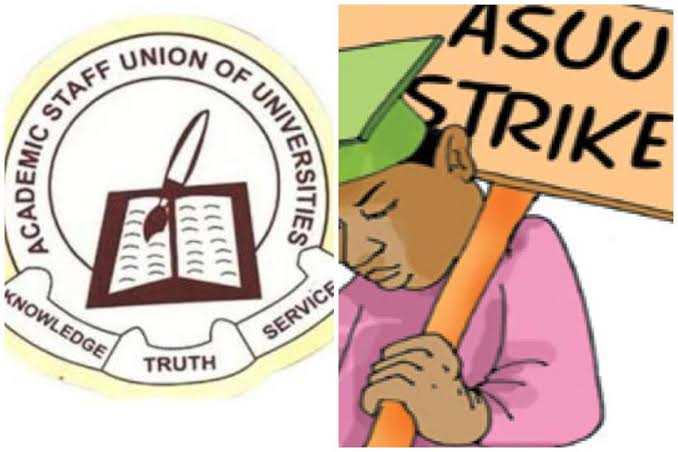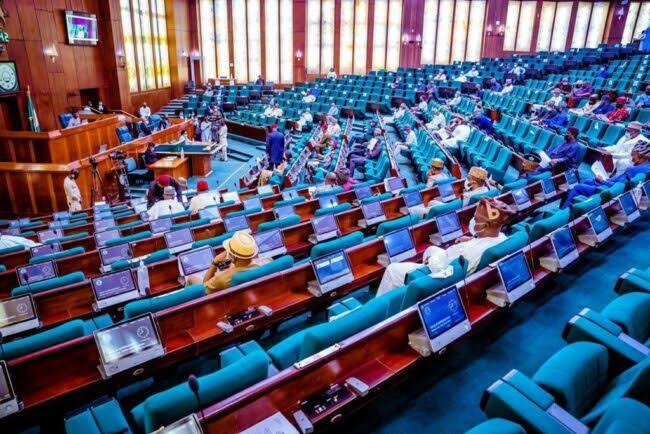The Academic Staff Union of Universities (ASUU) in Nigeria has once again raised the specter of a nationwide strike, signaling deepening frustration with the federal government led by President Bola Tinubu. A recent article published on May 23, 2025, titled “ASUU Hints at Strike After Exhausting Patience with Corrupt Tinubu Govt,” outlines the grievances fueling this potential crisis. The issues at hand are not new but are part of a long-standing dispute between ASUU and successive Nigerian administrations.
The Core Issues Driving ASUU’s Strike Threat
At the heart of ASUU’s latest ultimatum are several unresolved demands that the union has been pushing for years. ASUU’s National Executive Council (NEC) has expressed exasperation over the federal government’s failure to address critical issues affecting university lecturers and the education sector at large. These issues include:
-
Non-Payment of Salaries and Arrears: ASUU has accused the government of withholding salaries for several months, a recurring issue that stems from previous industrial actions, notably the 2022 strike. The union also highlighted unpaid promotion arrears, which have left many lecturers financially strained despite fulfilling their professional obligations.
-
Stalled Renegotiation of the 2009 ASUU/FGN Agreement: The 2009 agreement between ASUU and the Federal Government of Nigeria (FGN) was meant to address funding for universities, staff welfare, and infrastructure development. However, 16 years later, the renegotiation of this agreement remains incomplete, with successive governments failing to honor commitments to revitalize Nigeria’s public universities.
-
Issues with the Integrated Payroll and Personnel Information System (IPPIS): ASUU has long criticized the IPPIS, a centralized payroll system introduced by the government, for causing payment distortions. The system, according to the union, fails to account for the unique nature of academic work, leading to underpayments, delayed salaries, and other discrepancies. ASUU has advocated for an alternative system, the University Transparency and Accountability Solution (UTAS), but the government has been slow to adopt it.
-
Illegal Dissolution of University Governing Councils: The dissolution of university governing councils by the Tinubu administration has been a significant point of contention. ASUU argues that this move violates university autonomy and has led to administrative irregularities, further destabilizing the academic environment.
These grievances, combined with what ASUU perceives as a lack of good faith from the government, have pushed the union to the brink. The NEC’s statement, as reported by The Guardian Nigeria, emphasized that the union’s patience is “wearing thin,” and a strike may be inevitable if the government does not act swiftly to address these demands.
The Path to Resolution
ASUU’s latest threat comes at a critical juncture for the Tinubu administration, which is already grappling with economic challenges, including inflation and currency depreciation. The government’s response to ASUU’s demands will be a litmus test of its commitment to education and its ability to manage labor disputes effectively.
To avert a strike, the government would need to take concrete steps to address ASUU’s demands. This could include releasing outstanding salaries and arrears, resuming negotiations on the 2009 agreement, adopting an alternative to IPPIS, and reinstating university governing councils. However, given the history of partial concessions and unfulfilled promises, ASUU remains skeptical of the government’s willingness to act decisively.
For its part, ASUU must also consider the impact of strikes on students and the public perception of the union. While industrial action is a legitimate tool for pressing demands, the frequency of strikes has led to accusations of intransigence, with some arguing that ASUU’s approach alienates potential allies among the public.
A Call for Dialogue and Action
The looming threat of an ASUU strike is a stark reminder of the fragility of Nigeria’s education system. The issues raised by the union—underfunding, poor working conditions, and administrative overreach—are legitimate and demand urgent attention. However, the cycle of strikes and government inaction has created a seemingly intractable problem that requires fresh approaches to dialogue and problem-solving.
Both ASUU and the federal government must prioritize constructive engagement to avoid further disruptions. For the government, this means honoring commitments and investing meaningfully in education. For ASUU, it means exploring alternative strategies to pressure the government while minimizing harm to students. Ultimately, the resolution of this crisis will require political will, transparency, and a shared commitment to the future of Nigeria’s youth.
As the situation unfolds, Nigerians will be watching closely, hoping for a resolution that restores stability to the education sector. For now, the clock is ticking, and the prospect of another strike looms large. Stay tuned for updates as we continue to monitor this developing story.
Join our Whatsapp channel to stay updated always!


